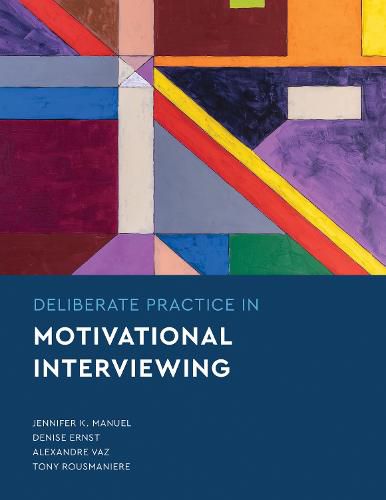Readings Newsletter
Become a Readings Member to make your shopping experience even easier.
Sign in or sign up for free!
You’re not far away from qualifying for FREE standard shipping within Australia
You’ve qualified for FREE standard shipping within Australia
The cart is loading…






Deliberate practice exercises help clinicians develop competence in fundamental motivational interviewing skills to better assist clients with change goals, like quitting addictive behaviors and developing healthier habits, and to improve treatment engagement and retention.
These exercises present role-playing scenarios in which two trainees act as a client and a clinician, switching back and forth under the guidance of a supervisor. The clinician improvises appropriate and authentic responses to client statements organized into three difficulty levels-beginner, intermediate, and advanced-that reflect common client questions and concerns.
The first 12 exercises focus on specific skills, such as offering simple and complex reflections and affirmations, eliciting change talk, supporting client autonomy, and collaboratively mapping session agendas. These are followed by two comprehensive exercises-an annotated transcript and free-form mock therapy sessions-in which trainees integrate essential skills into one session.
Step-by-step instructions guide participants through the exercises, identify criteria for skill mastery, and explain how to monitor and adjust difficulty. Guidelines and forms to help trainers and trainees get the most out of training are also provided.
$9.00 standard shipping within Australia
FREE standard shipping within Australia for orders over $100.00
Express & International shipping calculated at checkout
Deliberate practice exercises help clinicians develop competence in fundamental motivational interviewing skills to better assist clients with change goals, like quitting addictive behaviors and developing healthier habits, and to improve treatment engagement and retention.
These exercises present role-playing scenarios in which two trainees act as a client and a clinician, switching back and forth under the guidance of a supervisor. The clinician improvises appropriate and authentic responses to client statements organized into three difficulty levels-beginner, intermediate, and advanced-that reflect common client questions and concerns.
The first 12 exercises focus on specific skills, such as offering simple and complex reflections and affirmations, eliciting change talk, supporting client autonomy, and collaboratively mapping session agendas. These are followed by two comprehensive exercises-an annotated transcript and free-form mock therapy sessions-in which trainees integrate essential skills into one session.
Step-by-step instructions guide participants through the exercises, identify criteria for skill mastery, and explain how to monitor and adjust difficulty. Guidelines and forms to help trainers and trainees get the most out of training are also provided.